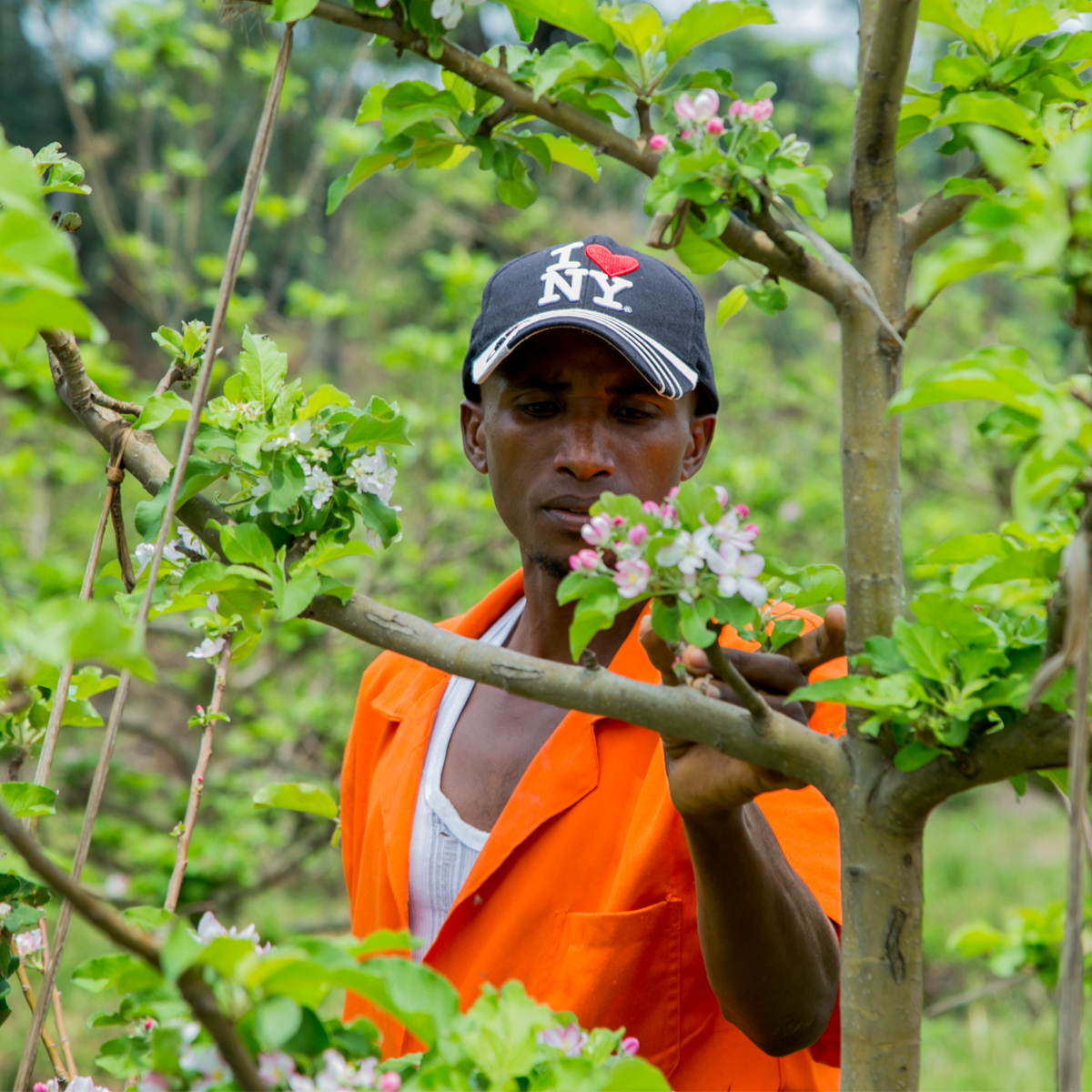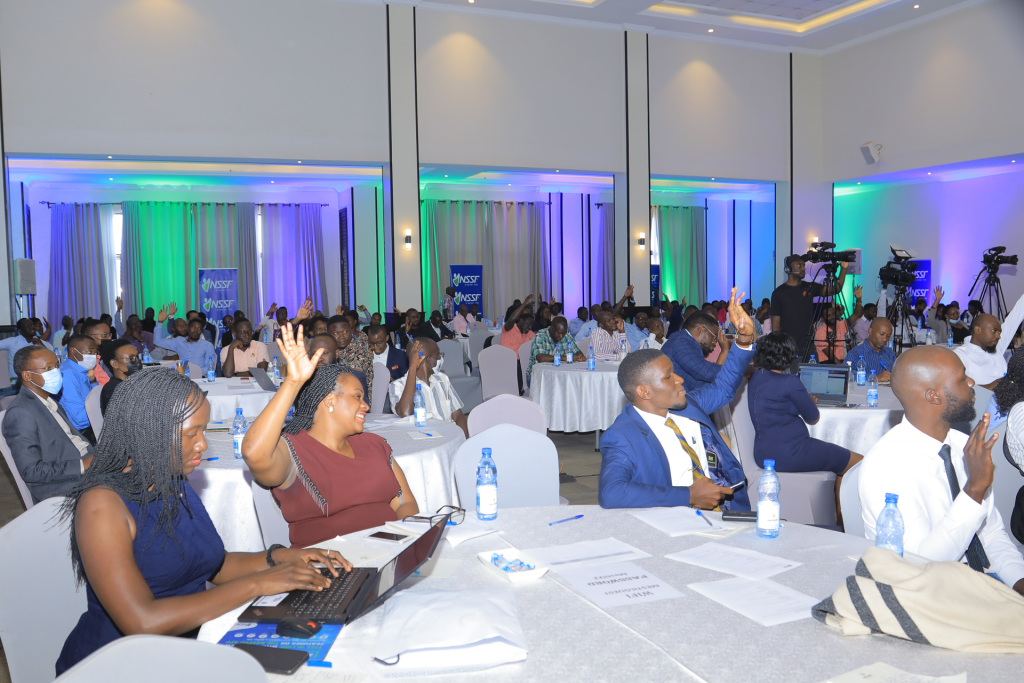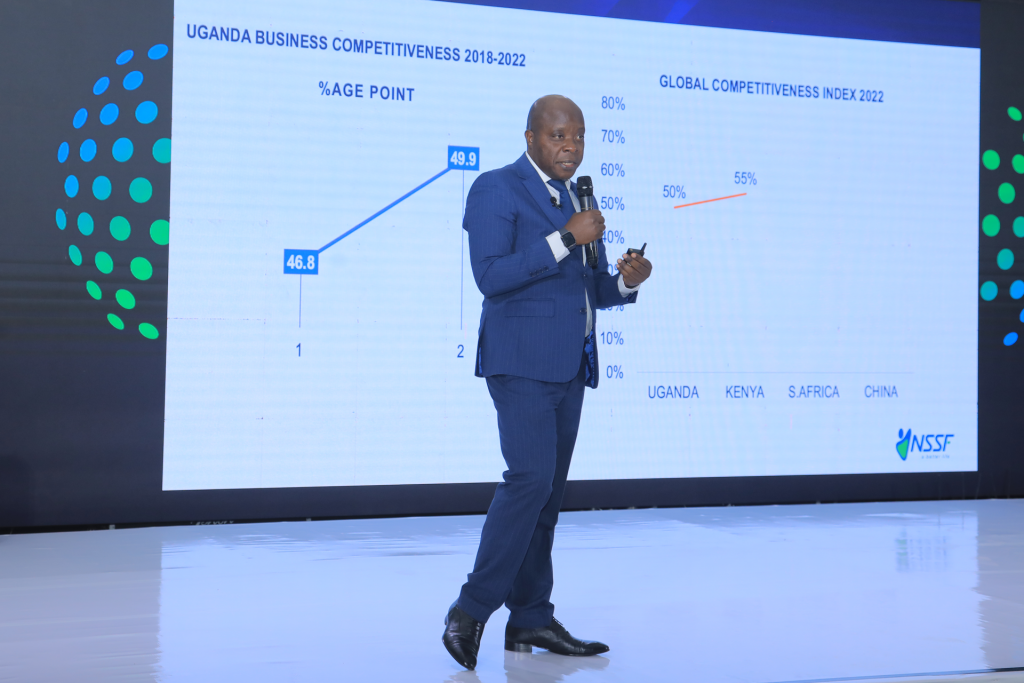
Menu

Gerald Mugabi
HEAD OF PROCUREMENT AND DISPOSAL UNIT

Gerald Mugabi
HEAD OF PROCUREMENT AND DISPOSAL UNIT

One of the most publicised impacts of the global Covid-19 pandemic was in China, the “world’s factory”, and the subsequent global knock-on effect. There has been a huge slowdown in global production and challenges have arisen around supply and logistics capabilities globally. According to the recent Dun & Bradstreet Report issued on 12th May 2022, more than 600,000 businesses worldwide rely on Russian and Ukraine suppliers, with just over 90% of them based in the US.
One of the most publicised impacts of the global Covid-19 pandemic was in China, the “world’s factory”, and the subsequent global knock-on effect. There has been a huge slowdown in global production and challenges have arisen around supply and logistics capabilities globally. According to the recent Dun & Bradstreet Report issued on 12th May 2022, more than 600,000 businesses worldwide rely on Russian and Ukraine suppliers, with just over 90% of them based in the US.

These disruptions necessitated that the Fund adopts more robust procurement processes; we implemented a strategy to capture supplier tier details to help establish which providers are fit for nearshoring and entered framework contracts with them to ease service delivery, and for complex projects, we made use of joint ventures or sub-contracting with providers from both near and far so that the transfer of knowledge from such assignments improves local expertise.
In Uganda, the amended PPDA Act 2021 has enabled the use of Electronic Government Procurement (EGP) to handle all procurement and disposal transactions. Our suppliers can now receive and respond to business opportunities from the comfort of their homes. The amendments have further enabled negotiations with bidders for better contract terms and reduced costs.
These disruptions necessitated that the Fund adopts more robust procurement processes; we implemented a strategy to capture supplier tier details to help establish which providers are fit for nearshoring and entered framework contracts with them to ease service delivery, and for complex projects, we made use of joint ventures or sub-contracting with providers from both near and far so that the transfer of knowledge from such assignments improves local expertise.

In Uganda, the amended PPDA Act 2021 has enabled the use of Electronic Government Procurement (EGP) to handle all procurement and disposal transactions. Our suppliers can now receive and respond to business opportunities from the comfort of their homes. The amendments have further enabled negotiations with bidders for better contract terms and reduced costs.
The Fund managed to sustain its operations amidst the challenging landscape thanks to its investment in technology.
This was reflected in the Fund’s:
The Fund managed to sustain its operations amidst the challenging landscape thanks to its investment in technology.
This was reflected in the Fund’s:




In collaboration with our key suppliers, we develop policies and improve practices to minimise sustainability risk within our supply chain. Our interaction also helps us to extend their expertise and innovation in our business. At the end of June 2022, we had approximately 2,734 (June 2021: 2,300) contracted suppliers.
The engagement initiatives that are already in practice include, the NSSF Suppliers Forum, access to finance through advance payments for high value works, reserve of services, supplies or works to local firms in accordance with the PPDA guidelines as well as an innovation programme dubbed the Hi-Innovator in partnership with the Mastercard Foundation where small and growing businesses receive entrepreneurial skills and funding of up to 30,000 USD.
During the year, management held a series of meetings with one of our key technology suppliers to discuss technology developments and improvements to better support the smooth transition from legacy systems to a more robust and member-friendly system.
Our Suppliers span many cultures and continents. We believe this diversity makes us stronger and we are dedicated to building a diverse supplier data base that will ensure the best quality sourcing for the Fund while leveraging our inclusivity sustainability driver –


In collaboration with our key suppliers, we develop policies and improve practices to minimise sustainability risk within our supply chain. Our interaction also helps us to extend their expertise and innovation in our business. At the end of June 2022, we had approximately 2,734 (June 2021: 2,300) contracted suppliers.
The engagement initiatives that are already in practice include, the NSSF Suppliers Forum, access to finance through advance payments for high value works, reserve of services, supplies or works to local firms in accordance with the PPDA guidelines as well as an innovation programme dubbed the Hi-Innovator in partnership with the Mastercard Foundation where small and growing businesses receive entrepreneurial skills and funding of up to 30,000 USD.
During the year, management held a series of meetings with one of our key technology suppliers to discuss technology developments and improvements to better support the smooth transition from legacy systems to a more robust and member-friendly system.
Our Suppliers span many cultures and continents. We believe this diversity makes us stronger and we are dedicated to building a diverse supplier data base that will ensure the best quality sourcing for the Fund while leveraging our inclusivity sustainability driver –
